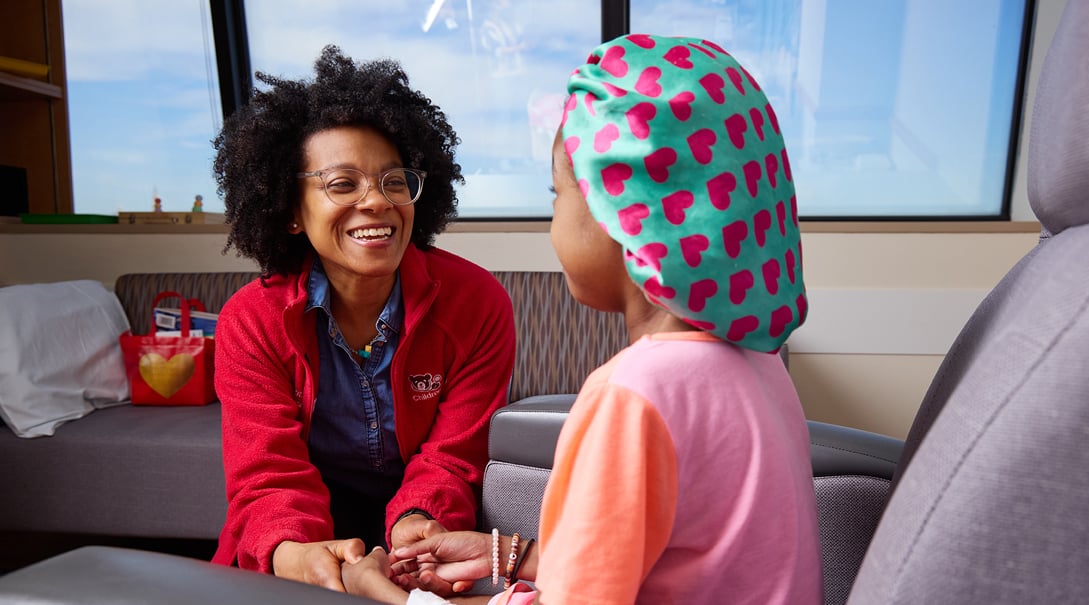
Celebrating Stellar Staff

At Children's National Hospital, more than 8,000 dedicated employees provide patients with world-class care and make new discoveries in pediatric medicine. We are proud to introduce you to a few staff members who exemplify our commitment to improve the health and well-being of children and their families.
Easing the Way
"My goal is always to help patients have better days," says Risi Idiokitas, DAOM, LAc. As a member of our PANDA Palliative Care team, she provides acupuncture, acupressure, massage and other Chinese medicine treatments to patients with serious and life-limiting illnesses.
She works with children in several inpatient units, including Oncology. She also treats patients in our Sickle Cell Integrative Care Clinic. "Whether they have a headache, nausea or just a lot of anxiety, I'm there to help them feel better."
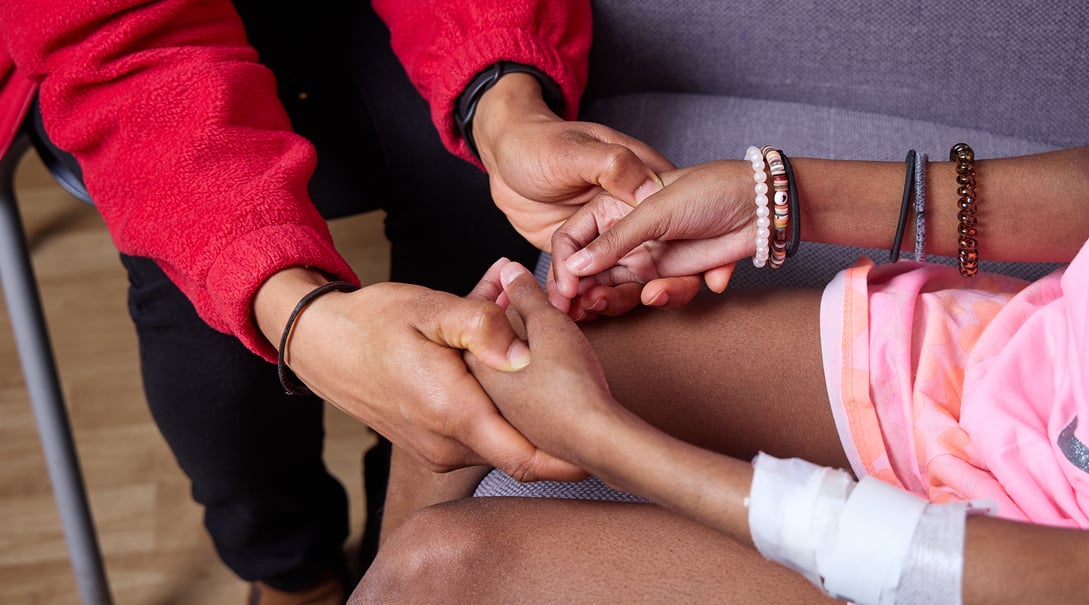
Dr. Idiokitas says it's rewarding to see how meaningful this therapy is for patients. "It is such a private time in these families' lives," she says. "To be invited in, welcomed, then asked to come back or stay longer is an honor. To know that I have positively contributed to their quality of life, that's huge."
I teach them self-acupressure and things that they can do at home; the clinic focuses on helping kids help themselves.
― Risi Idiokitas, DAOM, LAc
Supporting Families like Neighbors
Children born with cleft lip, cleft palate and other craniofacial anomalies face a complex care journey that begins at birth and can span decades. Many patients undergo surgical treatment before their first birthday, and comprehensive care frequently requires an interdisciplinary approach of more than 11 different medical specialists. This can be overwhelming for families.
Program Coordinator Pedro Flores Canales helps them seamlessly navigate the process. From the moment a child becomes a patient at Children's National, Flores Canales and Clinical Coordinator Elizabeth Benitez, PA-C, are there to help families understand their child's needs and answer questions, arrange necessary clinic visits, coordinate surgical care and provide social support.
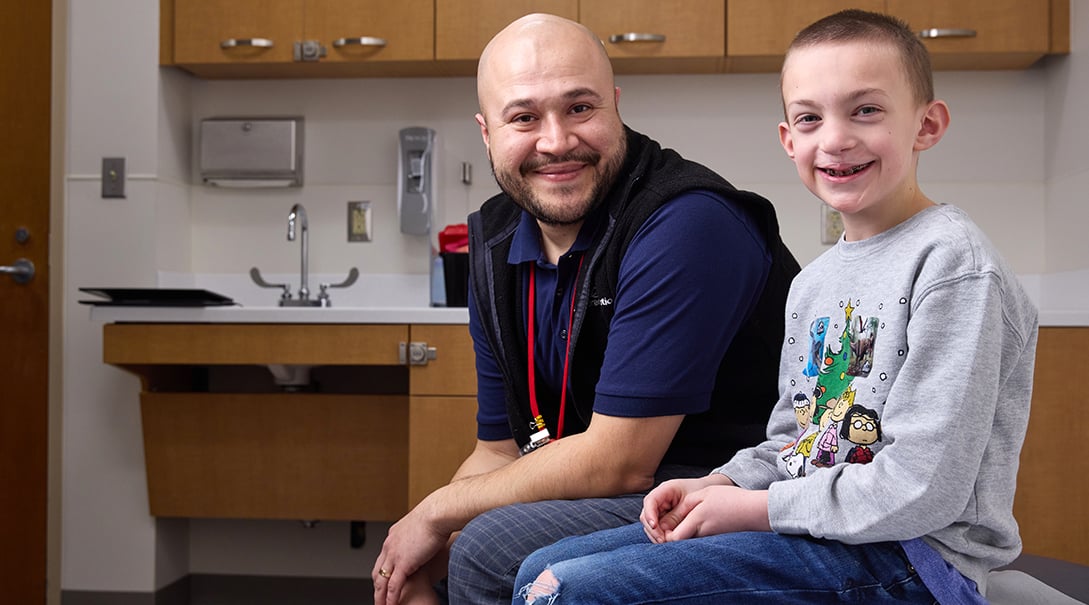
Flores Canales cares for families as though they are his neighbors. "I try not to view a child as just a patient but as my own kid or the kid down the block," he says. "I scoot down and speak eye to eye. I consider myself a personal concierge to alleviate the stress of being a patient and navigating the hospital system. It can be intimidating, especially for a family that speaks Spanish. They're trying to understand signs, wondering where to go and what to expect. Families say it's a relief that someone is here to speak with them."
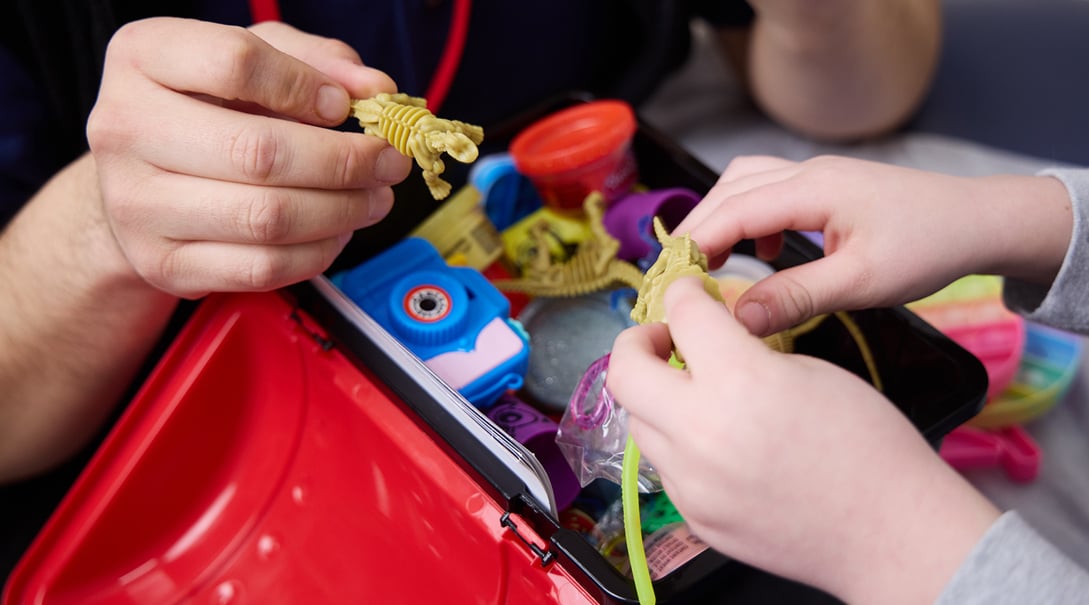
This exemplary care coordination and access to specialty services improves patient outcomes and satisfaction. Generous support from the Johnston Family Endowment makes the program coordinator position possible.
I consider myself a personal concierge to alleviate the stress of being a patient and navigating the hospital system.
― Pedro Flores Canales
Program Coordinator, Cleft and Craniofacial Program
Caring for Kids with Rare Diseases
Children with rare, neurogenetic conditions that affect the development and function of their nervous system see Jullie Rhee, MSN, CPNP-AC, throughout their healthcare journey. As nurse practitioner team lead in Neurology, she works across disciplines to deliver specialized care to these patients. All face shortened lifespans and hope for a cure.
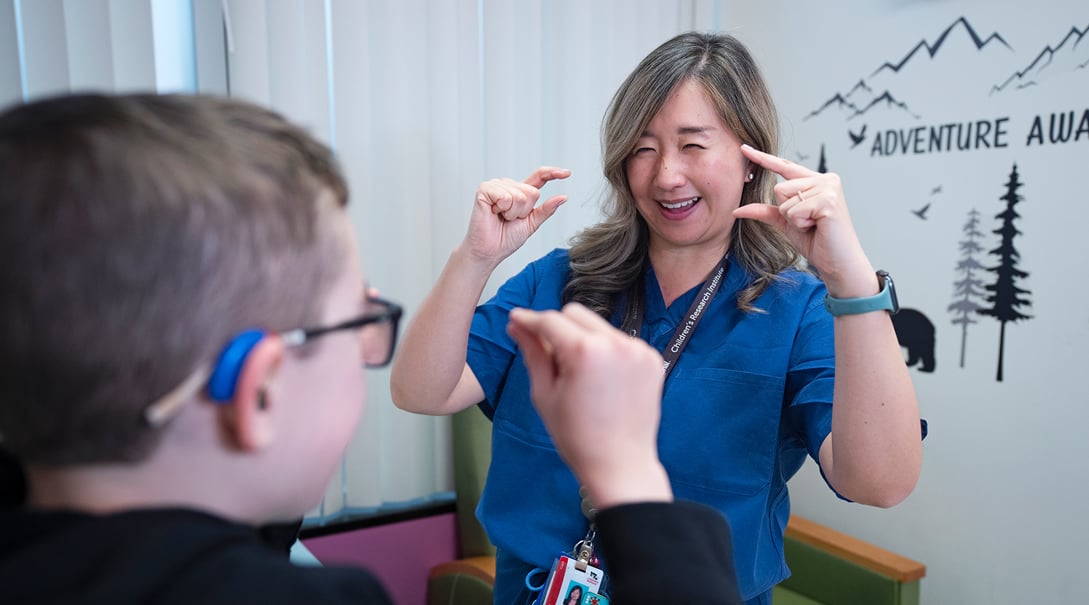
In our Leukodystrophy and Myelin Disorders Program, also known as the White Matter Clinic, Rhee ensures that every patient receives the care they need with the specialists within the program. In the operating room and radiology suite, she handles spinal taps to diagnose patients or administer medication for conditions like Spinal Muscular Atrophy. Kids with inherited metabolic disorders like Niemann-Pick disease and Dravet Syndrome are receiving a new treatment as part of a study in the rapidly evolving field of rare disease research.
"It is challenging work but really rewarding to see how far treatment has come during the last 10 years," Rhee says. "Children who did not have the opportunity to receive or be considered for treatment can now access it. We might not be able to provide a cure for all, but being involved in this innovative research allows me to be a part of patients' journeys, and that is special."
Building lasting relationships with children and their families, especially those who come to receive treatment every two weeks, is so rewarding.
― Jullie Rhee, MSN, CPNP-AC
Helping Families Stay on Track
Roxy Velasquez, a health coach in our Division of Endocrinology and Diabetes, offers kindness and ongoing support for families in this situation. She helps families cope and keeps patients’ diabetes care on track by serving as a bridge to our multidisciplinary care team.
"Imagine everything is OK one day and suddenly you're facing a shocking diagnosis," says Velasquez. "It completely changes a family's life."
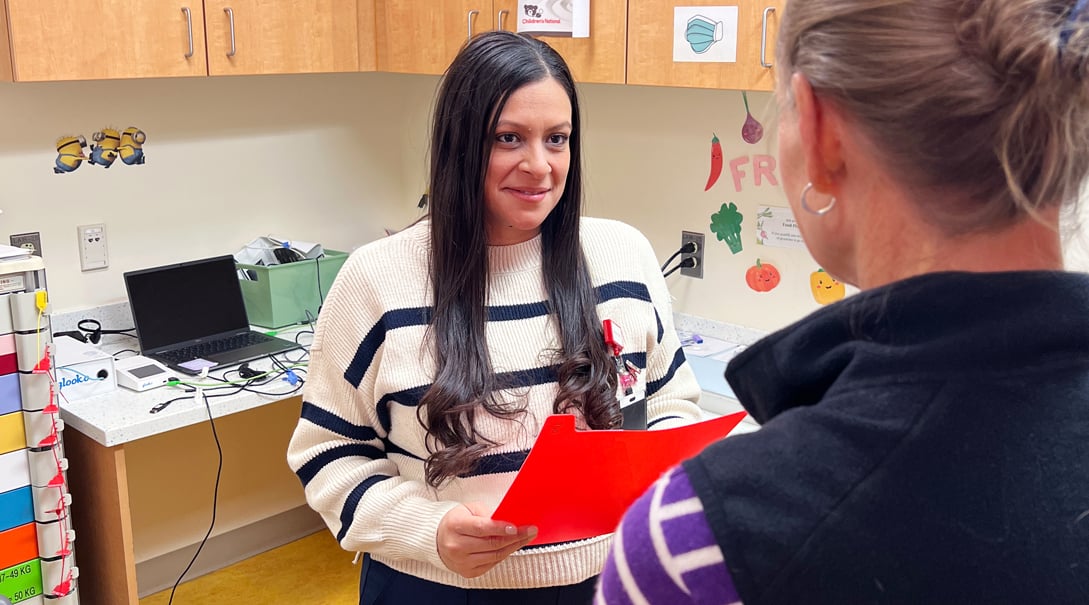
She provides bilingual support in Spanish and English to help families navigate insurance and manage appointments and occasionally transportation. She connects them with mental healthcare and social workers.
Sometimes it's a three-way phone call to a pharmacy to make sure a family gets the right medicine or enough insulin pens. Help to manage these details means fewer kids will get so sick that they need emergency care.
Velasquez's position is supported entirely by philanthropy.
When I speak to a mom or dad, I feel like maybe I've given them a little peace of mind. It helps them to know they're not alone. My job is all about making sure they're OK.
― Roxy Velasquez
Health Coach, Division of Endocrinology and Diabetes

Make a Difference
Your charitable donation changes children’s lives. Support exceptional health care and discoveries that offer hope, healing and brighter futures.



